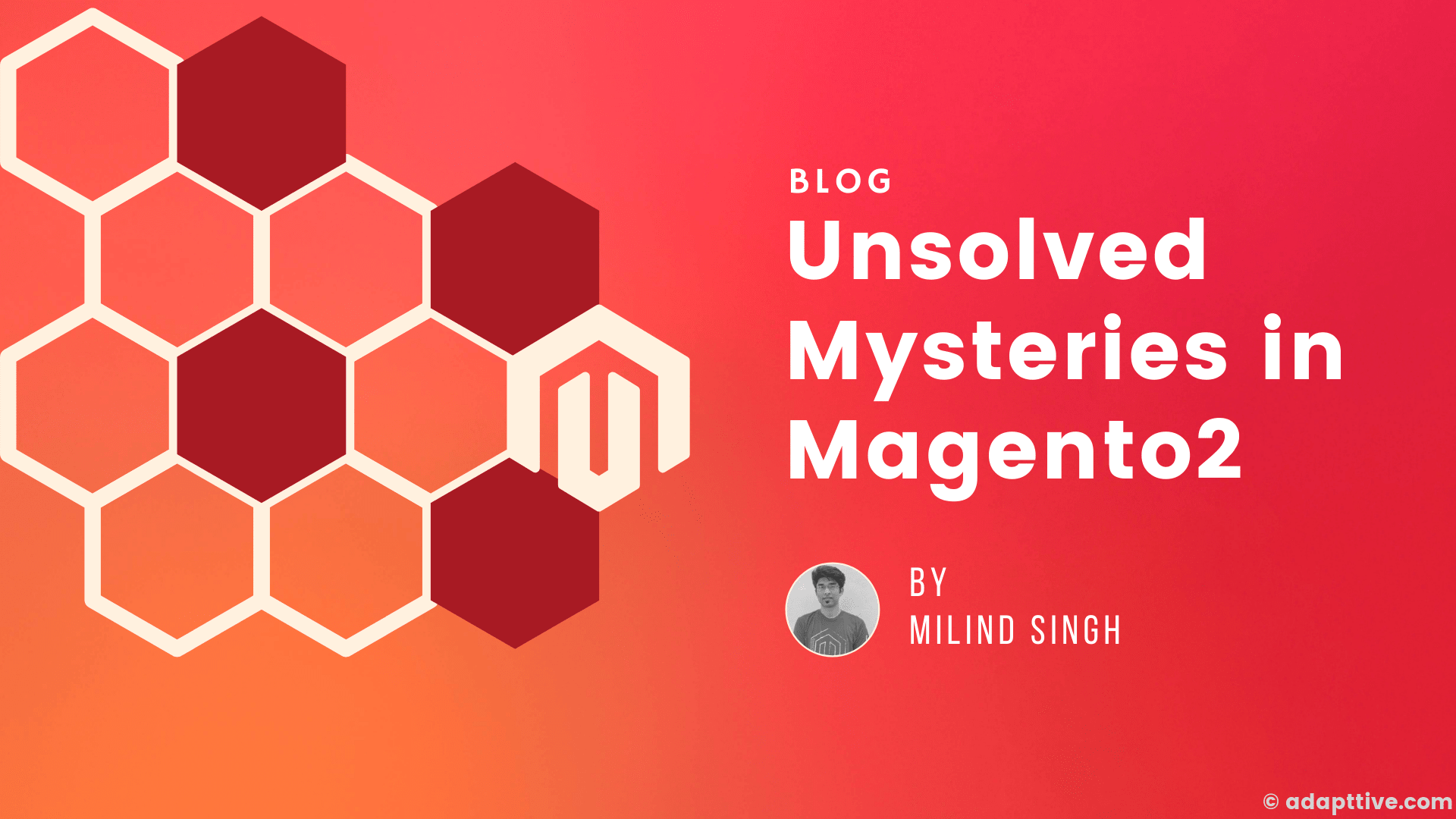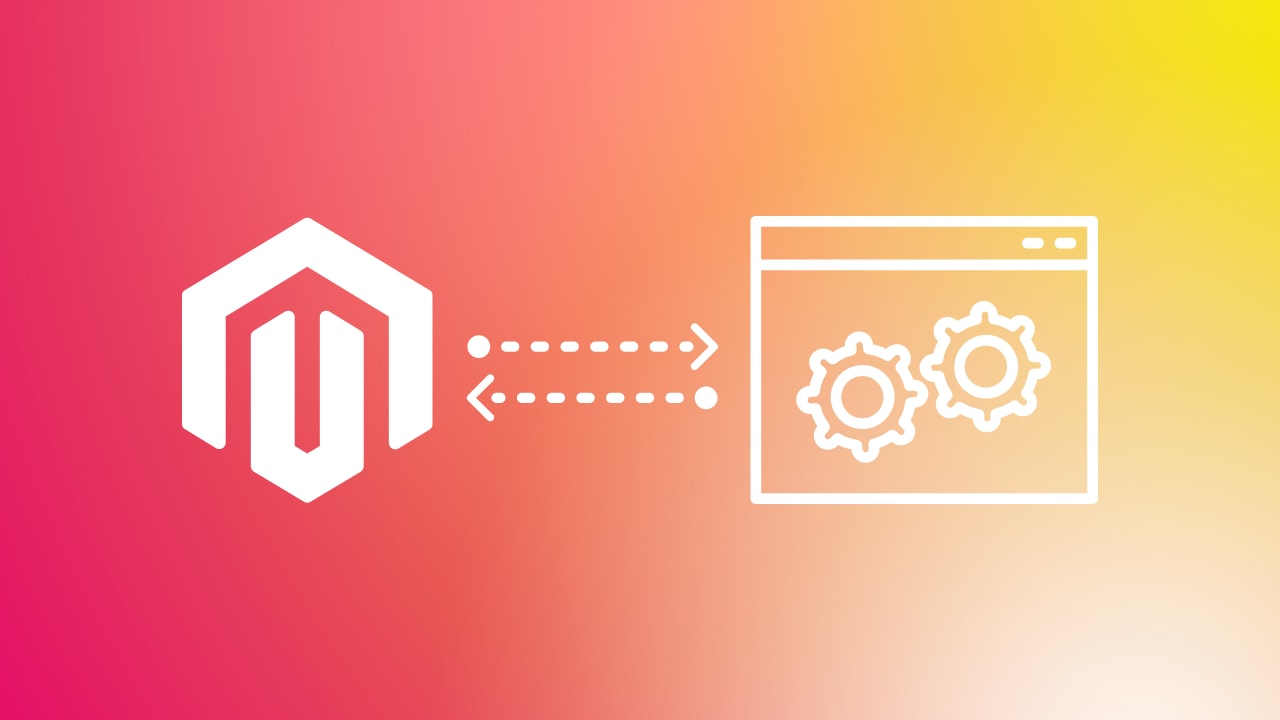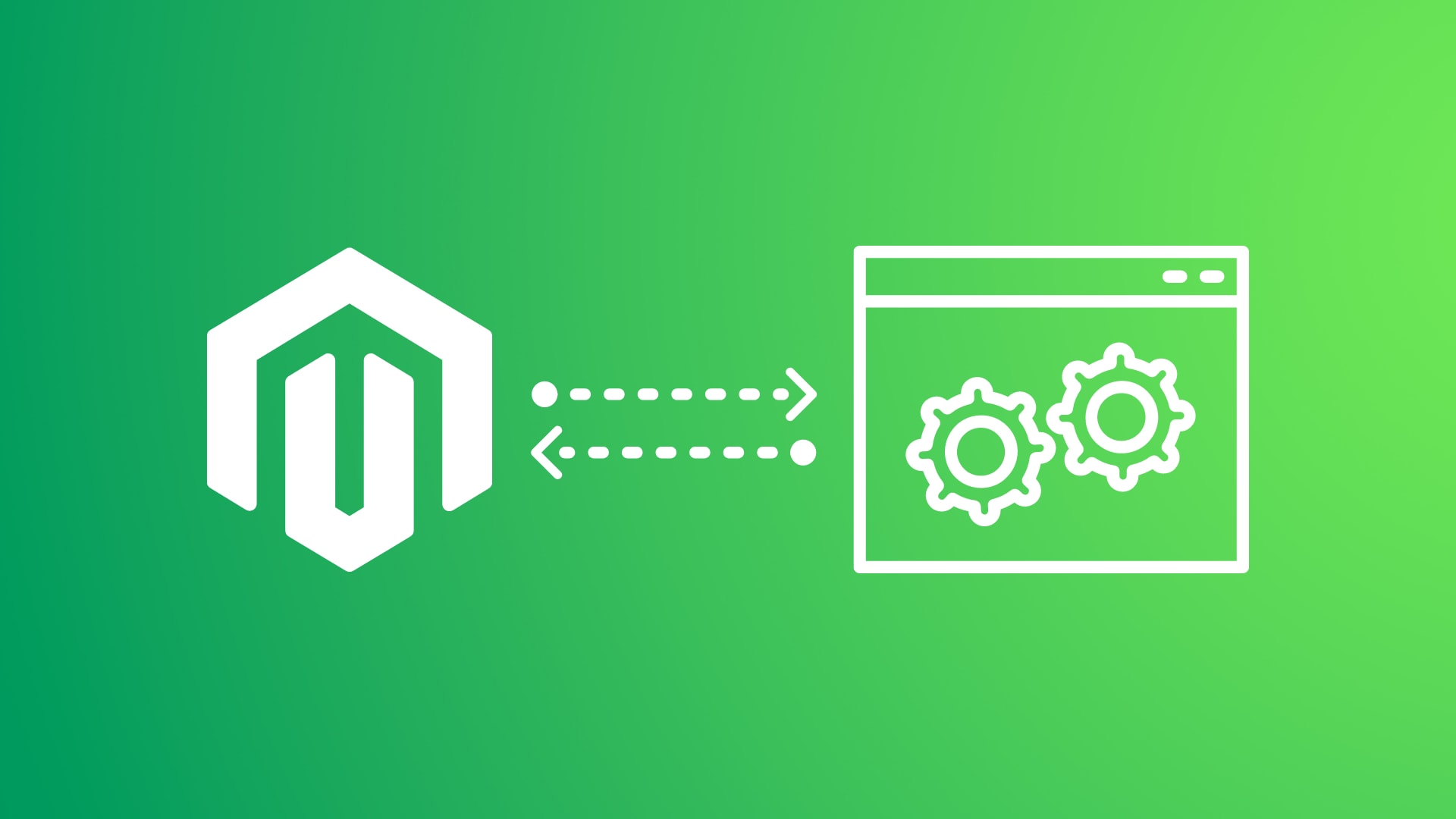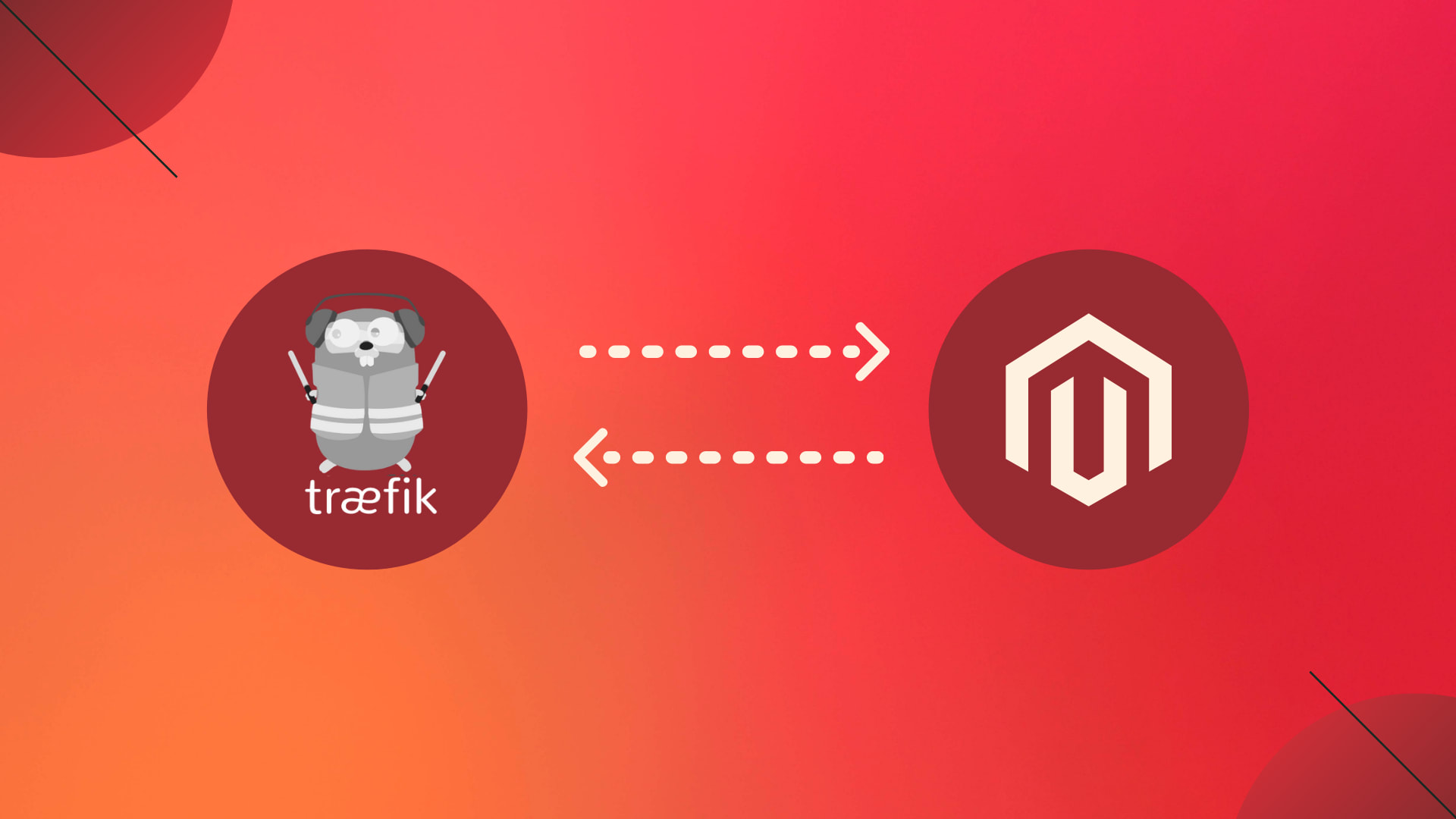

Even after years of development, the quest to find a solution with Magento 2 is un-ending. The difficulties I face in every implementation are real and common pain points. The objective is not to just brag about problems, but to solve them and ask for feedback.
Though I still have faith in the Magento Community, still a lot of improvements are needed in the core for a better developer experience. Let's check out a few I faced (and fixed) in Magento 2!
-
Observing add to cart/qty update
-
Why do we need this?
- We don't want to use magento/inventory (i.e. MSI) for stock management in multiple locations (though we have multiple warehouses) due to its performance, bugs and features (different than needed in our inventory system).
- We don't want to use magento/catalog-inventory for the same reason (unfulfilled requirements) and its deprecated in favor of magento/inventory .
- We needed the inventory as a service, decoupled from Magento 2.
- We needed to add validation to restricted minimum add to cart and maximum add to cart quantity.
- We needed to apply promotions/linked services (like gift items, warranty service item, etc) with the main product add to the cart.
-
How did we solve it?
- Using the
sales_quote_product_add_afterevent for new product add - Using the
sales_quote_item_qty_set_afterevent for qty change (will run on add new product also) -
Refer to magento/catalog-inventory (deprecated) observer for qty validation.
public function validate(Observer $observer) { /* @var $quoteItem Item */ $quoteItem = $observer->getEvent()->getItem(); if (!$quoteItem || !$quoteItem->getProductId() || !$quoteItem->getQuote() ) { return; } $product = $quoteItem->getProduct(); $qty = $quoteItem->getQty(); /* @var \Magento\CatalogInventory\Model\Stock\Item $stockItem */ - Using the
sales_quote_save_beforeevent to run validation before cart save.
- Using the
-
-
Observing order status/state change
-
Why do we need this?
- You might have heard about the common Magento 2 certification question, i.e.
How do you sync/push orders to 3rd party ERP ?(we needed it) but the Magento 2 order workflow provides no consistent way to observe orderstatus/statechange. - We need to run after the order promotions, like providing coupons to the customer on successful order delivery.
- We need to auto fulfil orders for few cases.
- You might have heard about the common Magento 2 certification question, i.e.
-
How did we solve it?
- Using
sales_order_save_afterevent and match theorig_datawith currentdatabut its not reliable. In zero-subtotal order, thesales_order_save_afteroriginal status will benulland the current status will beprocessingbut in other cases, it will benew/pendingfor newly placed orders. -
Using
afterplugins can be added on the followings, but its do not cover all cases for example:pending -> processing. or any custom status that is being added from admin.\Magento\Sales\Api\OrderManagementInterface::cancel($id)\Magento\Sales\Api\OrderManagementInterface::hold($id)\Magento\Sales\Api\OrderManagementInterface::unHold($id)\Magento\Sales\Api\OrderManagementInterface::place($id)
- Using
-
-
Add multiple products in addition to the cart
-
Why do we need this?
- Bulk order or bulk wishlist to cart action requires multiple products add to cart APIs but Magento 2 is not designed to add multiple products together in the cart.
-
How did we solve it?
- Using the
aroundplugin on add to cart.
- Using the
-
-
Consumers and their inconsistency with Repositories
-
Why do we need this?
- We needed to optimise the checkout flow and decouple few operations on place order and process them asynchronously but don't use the repository in
queueconsumers.
- We needed to optimise the checkout flow and decouple few operations on place order and process them asynchronously but don't use the repository in
-
How did we solve it?
- Using
OrderRepositoryInterfaceFactoryobject insteadOrderRepositoryInterfacein the__construct. Not the best solution, but was a quick fix.
- Using
-
-
APIs that don't support token refresh/revoke
- Yes, we preferred
RESTAPIs overgraphql, due to stability and security reasons but it misses some basic APIs, like customer logout via API or refreshing thecustomer tokenwith therefresh token. -
How did we solve it?
- Added our own
logoutAPI by referring toGraphQLlogout implementation in Magento2. - Refresh token is still in backlog (maybe I will pick it up). [FEAT] Add token refresh API call to GraphQl and REST API
- Added our own
- Yes, we preferred
-
Core bugs that need test cases
- There were small bugs, like few admin customer form fields were not getting saved on submit, we raise PRs to the core, but was very difficult to merge them as a small change in
di.xmlwould require test cases to be added.
- There were small bugs, like few admin customer form fields were not getting saved on submit, we raise PRs to the core, but was very difficult to merge them as a small change in
-
Bundled modules that are bloatware
-
Why do we need this?
- I don't think I need to explain this, there are around
157modules that we generally disable in a project. Also, usedreplacea few times incomposer.jsonto totally remove them from the project (but make sure you know thatMagento Commercedo not provide support if you want to remove i.ereplaceany bundled module). - We don't use
magento/inventory,magento/graph-ql, shipping module likedhl,fedex, payment method modules, 3rd party modules, etc so why keep them in the database and in vendor with all dependencies.
- I don't think I need to explain this, there are around
-
How did we solve it?
-
Jisse Reitsma from Yireo has already provided a great package to remove optional modules. Take reference from the following
composer.jsonfile and remove not needed module from the project.{ "name": "yireo/magento2-replace-all", "description": "Remove various packages from Magento", "require": { "magento/product-community-edition": "2.4.*" }, "replace": { "amzn/amazon-pay-and-login-magento-2-module": "*", "amzn/amazon-pay-and-login-with-amazon-core-module": "*", "amzn/amazon-pay-module": "*", "amzn/amazon-pay-sdk-php": "*", "amzn/login-with-amazon-module": "*", "astock/stock-api-libphp": "*", "braintree/braintree": "*", "braintree/braintree_php": "*", "dotmailer/dotmailer-magento2-extension": "*", "dotmailer/dotmailer-magento2-extension-b2b": "*", "dotmailer/dotmailer-magento2-extension-chat": "*", "dotmailer/dotmailer-magento2-extension-enterprise": "*", "dotmailer/dotmailer-magento2-extension-enterprise-package": "*", "dotmailer/dotmailer-magento2-extension-package": "*", "dotmailer/dotmailer-magento2-extension-sms": "*", "klarna/m2-payments": "*", "klarna/module-core": "*", "klarna/module-kp": "*", "klarna/module-kp-graph-ql": "*", "klarna/module-onsitemessaging": "*", "klarna/module-ordermanagement": "*",
-
-
-
TCO that is very high
- Magento 2 offers a million of features, but the large-scale system uses none, besides the framework. I must say that there is no other platform such as Magento 2 which offers such great features out of the box at a very less price or free (open source). SFCC, Hybris, etc are no way near to Magento2 in terms of features.
- Large stores don't prefer monolith or say can't use monolith due to certain factors. Inventory is managed from WMS, CMS is mostly not Magento OTB, CRM is external, and a PIM is external. Storefront is PWA/Headless/Hyva or anything but the default Luma. So what they use is APIs and most parts of the back office admin.








